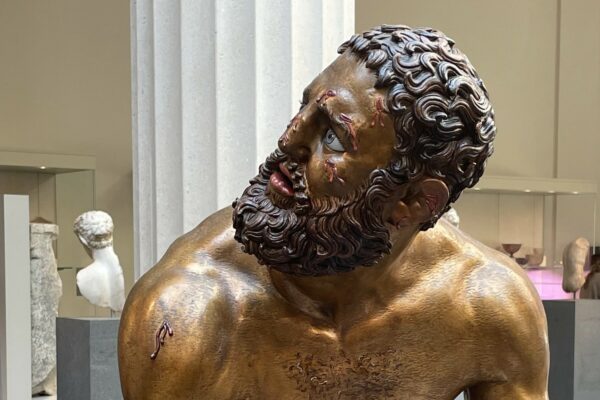All CLAS courses cross-listed with HIST can be applied to the History Minor, as well as the Classical Studies Minor.
CLAS-C 351 Change and Innovation in Greece
- combined with HIST-C 395
Explore the intellectual, cultural, and political world of democratic Athens, through the lens of literary and artistic masterpieces. This unparalleled period saw an astonishing florescence in architecture (the Parthenon), sculpture (Phidias), theater (Euripides, Sophocles), and more, as well as monumental historic developments (the Persian and Peloponnesian Wars, the Athenian Empire) that would shape the world to come.
CLAS-C 361 Ancient Roman Revolutions
- combined with HIST-C 396
Explore the intellectual, cultural, and political world of Augustan Rome through the lens of literary and artistic masterpieces. This unparalleled period saw an astonishing florescence in architecture (the Forum of Augustus), sculpture (the Altar of Peace), literature (Virgil, Ovid), and more, as well as monumental historic developments (the fall of the Republic, the rise of the Roman Empire) that would shape the world to come.
- combined with HIST-C 386
Explore the history of Ancient Greece from the time of the Mycenaean Kings (1600 BC) to the final conquest by Rome (30 BC). This critical period of history covers (a) the Bronze Age collapse (b) the rise and fall of Troy, Athens, Sparta, and Thebes; (c) the birth of democracy, theater, and the jury system; (d) the career of Alexander the Great and the Hellenistic Age. Read a selection of primary sources to hear the ancient Greeks in their own words, and encourage critical analysis of historical sources.
- combined with HIST-C 388
Explore the history of Ancient Rome from the time of the Etruscan Kings (750 BC) to the last days of the Empire (350 AD). This critical period of history covers (a) the rise of Rome from village to empire; (b) the Civil Wars of Pompey, Julius Caesar, Marc Antony and Cleopatra, and the first emperor Augustus; (c) the reigns of ‘bad’ emperors (Caligula, Nero, Commodus) and ‘good’ (Titus, Trajan, Marcus Aurelius); (d) the establishment of Christianity under Constantine. Read a selection of primary sources to hear to hear the ancient Romans in their own words, and encourage critical analysis of historical sources.


